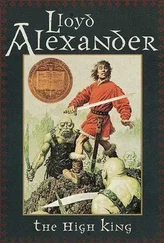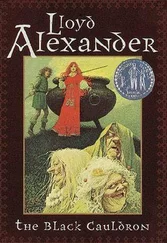“As long as you’re at the Wolf’s Lair in three days you can do as you like, but tell no one where you’re going.”
After breakfast, I said good-bye to the staff who remained and quickly packed my things. The bare room looked forlorn and, for an instant, I had a memory of Ursula reclining on her bed, lighting a cigarette, blowing smoke out the window so she wouldn’t get caught. I admired her courage, but faulted her planning. She took on Hitler and failed. As Karl had pointed out, hasty actions, like those of Ursula, ended badly. One had to proceed with caution and an abundance of planning. I pushed such notions from my head. The very thought of bringing Hitler down seemed impossible.
An SS car took me to the train station in Berchtesgaden. I had no time to visit Uncle Willy and Aunt Reina; I was in no mood to talk with them anyway. I wanted no questions about Hitler, or their encouragement about how wonderful it was to serve the Führer.
I arrived in Berlin late in the evening. The city surprised me with its vibrancy. I had gotten used to the quiet mountain solitude of the Berghof. The lights, the chug of motorcars, the hundreds of smells—each inviting a memory—made Berlin seem oddly new to me. It was as if I were seeing it for the first time.
I made my way to my parents’ apartment. Their street was quiet, away from the bustle, and, other than the blackout, the war seemed far away. There had been no major Allied bombings since Hitler’s birthday. The trees were in full leaf and their boughs cast dark shadows on the surrounding buildings. Slivers of light traced the outlines of a few windows. Sometimes the curtains would undulate in the breeze and a block of light from someone’s apartment would splash upon the sidewalk, only to be dissolved in an instant. A phonograph played in one house. The tune was melancholy but sweet, a lovely female voice praising the soldier who had gone to war for the Reich. The world seemed peaceful, and its serenity filled me with a sense of calm that had escaped me for months. I realized then that my job had taken its toll. My first hint was when I enjoyed a meal on the train. I was happy to be away from tasting, to just enjoy food and not worry that every bite could kill me.
I pushed the buzzer and waited. I hadn’t called because I wanted my visit to be a surprise. After a few more rings, my father came to the door in his robe. The hall was dark. His eyes scrunched up in a squint. The look of dismay on his face turned to a smile as soon as he recognized me. He swept me into his arms and nearly knocked the breath out of me with his hug.
“Magda, Magda,” he said with tear-filled eyes. “My God, how your mother and I have missed you.” He released me from his grip.
I stood on the stoop holding my bag. “May I come in?”
He took a few steps backward and said, “Of course, how silly of me.”
My mother appeared at the bedroom door, her eyes half-closed from sleep. She rushed toward me without saying a word and embraced me like my father had. After we exchanged kisses and hugs I was allowed inside.
“Are you home for good?” my father asked warily. The tone of his question made it clear that he still wanted me out of Berlin.
I put my bag on the floor next to the coat stand. “Only overnight; then I have to catch a train by noon tomorrow to—” I couldn’t tell my parents where I was going.
“Come to the kitchen,” my mother said. “I want to hear all about what you’re doing. We have two tea bags left for the week. I’ll make a pot. I’m too excited to sleep.”
My father nodded and we walked to the kitchen. My mother lit a candle and then my father and I sat at the small oak table while my mother made tea. She fidgeted with the kettle and the water and then turned to me with wide eyes. “What is he like?” Like most Germans, she was fascinated by the Führer, a man she had never seen.
“Lisa,” my father said. “You’re not the Gestapo. Did you stop to think that Magda might not be able to talk about him?”
My mother’s eagerness faded with a scowl. “No.” She went back to the tea.
“I’ve never met him,” I said. “I’ve seen him a few times at the Berghof and once near the Teahouse.”
“He has a teahouse?” my mother asked, astonished that such a thing existed.
“He has afternoon tea and apple cake there with his guests,” I said, feeling that such information could cause no harm. “It looks like a castle turret set into the forest. I’ve even talked to Eva Braun several times.”
No hint of recognition flickered in my parents’ eyes. How stupid of me to mention her name. Of course, they wouldn’t know who she was. Eva was a secret known only to a few. I dropped the subject.
My father settled in his chair. “What do you do?” He asked the question casually, as if he expected the answer of a “normal” job, such as a bookkeeper or accountant.
My stomach turned over—I didn’t want to create needless anxiety by telling them I was a taster and that my life was in danger every day. Living in Berlin, my parents had enough to worry about. “I work in the kitchen. I’m responsible for the food inventories and kitchen supplies.” It was a partial truth.
My mother returned to the table with three porcelain cups. While waiting for the kettle to boil, she sat next to me and held my hand. “I’m proud of you and so relieved. Such a good job, isn’t it, Hermann?”
My father nodded, but I could tell by his frown he was less than enthusiastic about any job connected with National Socialism. I asked about Frau Horst and our neighbors to shift the conversation away from me. Until we went to bed, we talked about my parents’ work and the mood in Berlin.
My mother was cleaning breakfast dishes by the time I got up the next morning. My father was sitting in the dining room drinking a cup of tea before he left for work.
“I was about to wake you up,” he said, “to say good-bye.” His eyes were dim, as if life had become an insufferable chore, a series of days strung together to be barely tolerated. “Thank you for not telling your mother,” he said softly.
My heart skipped a beat. “I don’t know what you’re talking about.”
“Of course you do.” His tone was flat, unemotional. “Uncle Willy found out what you do through his connections to the SS. Berchtesgaden is a small place.” He cupped his hands round his teacup. “He and Reina, of course, are ecstatic about your position. They couldn’t be happier. I begged him not to tell your mother because I don’t want her to worry.” He took a sip of tea and then put his cup on the table. “To them there is no sacrifice too great for the Führer.” He put his hands in his lap and looked toward the kitchen.
I whispered for fear my mother would hear, “I had no idea what my position would be. It was the job they gave me.” It felt good to share this with my father. I now understood why he cried when he saw me.
He sighed. “Your mother, who thinks washing dishes is still important while the world burns, believes the Reich will win the war. She has no idea about the rumors that circulate. I fear the worst for us all, Magda. It’s like we live in some manufactured world that’s shrinking day by day. I can feel the walls tumbling on Germany, on Berlin, on us.”
I trembled, afraid to look him in the eye. “What rumors do you hear?”
“That we have lost great battles in the East, that the tide has turned and that the easy victories Hitler forged in the early years are over. I would never speak to your mother of such things. She would throw me out of the house.” He laughed. “You cannot depend upon the Volkischer Beobachter for an accurate reporting of the war. The Party paper is not fit to line the canary cage.”
Читать дальше












